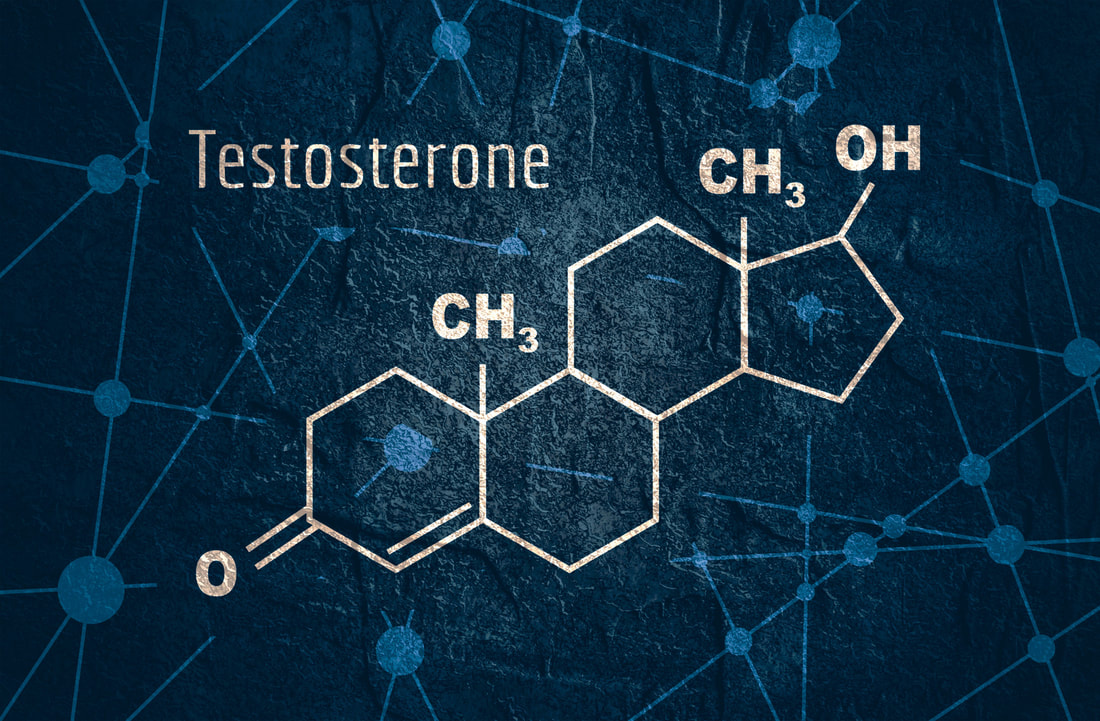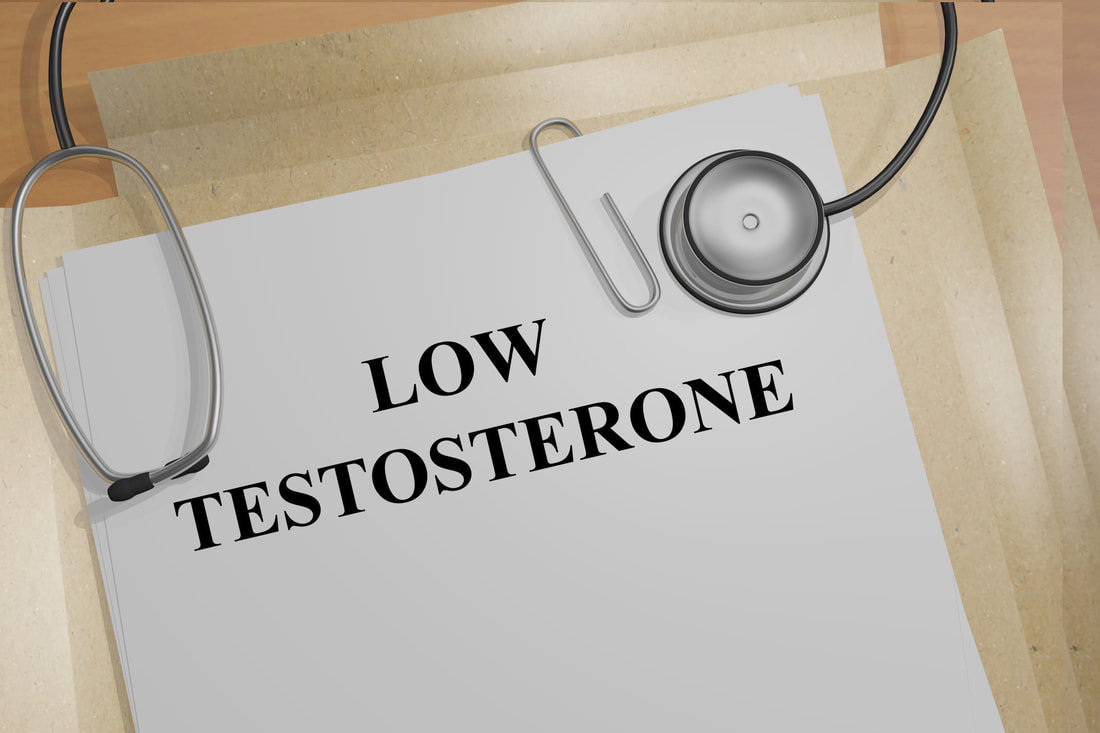 Many men are turning to testosterone replacement therapy (TRT) to counter the natural decrease in testosterone production. Manufacturers of these products market them as ways to increase libido, increase muscle mass, and boost mental faculties. Sales of testosterone products are growing rapidly. By 2017, it is expected to reach $5 billion. The growth of TRT treatments and drugs is expected to continue for years to come. While it's not the ideal solution for every man, TRT may be worth considering. Although low levels of testosterone are a common problem, there are many other symptoms that may signal that testosterone replacement therapy is necessary for you. Physical changes can include decreased energy, sluggishness, and irritability. Men with low testosterone may also experience weight gain, decreased muscle mass, swollen breasts, or body hair loss. In addition, they may suffer from a decreased level of motivation, decreased self-confidence, and difficulty concentrating. Kindly go to website for more useful reference about testosterone replacement therapy. Some of the side effects of testosterone replacement therapy include acne. While most men experience some minor acne during their treatment, some people may experience more severe forms of it. Acne typically responds to over-the-counter treatment, but severe cases may require prescription medication. For most men, testosterone replacement therapy does not negatively affect their mood, though it can aggravate depression and other mental conditions. It is important to speak to your healthcare provider before starting this treatment, though, because higher levels of testosterone may worsen these symptoms. Learn more about testosterone replacement therapy on tis post. In addition to testosterone replacement therapy, some men suffer from hypogonadism. This condition affects about 3 percent of men under 45 years old. However, the potential side effects of this treatment are serious and can include permanent infertility. In fact, it is not recommended for men suffering from cancer or heart problems. In some instances, testosterone can interact with certain medications, causing serious side effects. In addition, men who are taking it must consult with their healthcare provider if they plan to become pregnant. Several types of treatment options are available to men and women suffering from hypogonadism or for treating other endocrine disorders. The main goal of testosterone replacement therapy is to restore the concentration of testosterone in the blood. While intramuscular injections are the most commonly prescribed method, subcutaneous testosterone injections are also effective. Injections can also be administered through the nose or the skin. However, they may come with unwanted side effects and need to be repeated a few times. You can get more enlightened on this topic by reading here: https://en.wikipedia.org/wiki/Testosterone.
0 Comments
 Topping your testosterone level with prescription drugs is a proven way to improve your health. Testosterone is an important hormone in the body, but it can also cause a number of other problems, including reduced energy, depression, and muscle loss. Testosterone replacement therapy promises to combat these symptoms and restore your virility and sexual drive. But is testosterone replacement therapy for you? The answer is probably not as simple as you think. If you are taking testosterone and are considering getting pregnant, talk to your healthcare provider about your options. Testosterone treatment may put your unborn child at risk. However, there are many side effects of testosterone treatment, and it is important to talk with your healthcare provider about these. Some of these side effects can be reversible after stopping the treatment. In case you find that testosterone is not enough, try a lower dose or stay on a lower one for a longer period of time. It's good to visit this site for more information about this topic: https://risemenshealth.com/trt-basics/. While testosterone replacement therapy can improve your energy levels and sex drive, it can also affect your sperm production and virility. Testosterone replacement is not a permanent cure for low testosterone and the symptoms can reappear if you stop taking the medication. It's best to consult a doctor to see if testosterone replacement therapy is right for you. And don't forget that it's risky - talk to your doctor if you are considering getting treatment. You'll be glad you did. To supplement your body's natural testosterone levels, testosterone replacement therapy can be administered in a number of different ways. You can receive testosterone in injection form or as a topical cream. For best results, you should try injecting the medicine twice a week, but if you can't tolerate this, you can also opt for a subcutaneous patch. Patches are convenient and easy to use, but they can cause side effects. Because of the wide range of effects of this treatment, it's best to speak with a physician who has experience treating such patients. Testosterone replacement therapy can have dangerous side effects, such as permanent infertility. And because there are a number of newer forms of the treatment, postmarking surveillance is required. But this doesn't mean that it's impossible. Rather, it's the only way to get the right treatment for your child. To find out more about testosterone replacement therapy, see page. However, many studies have suggested that testosterone replacement therapy can cause serious side effects, including a rise in hematocrit, and an increased risk of heart disease and stroke. Although a number of studies have found no link between testosterone and prostate health, a higher risk of heart attack, stroke, and death has been reported. However, many more studies have been conducted and have not demonstrated a relationship between testosterone therapy and cardiac risk. The risk of polycythemia, a common side effect, is thought to be relatively low, despite the risks of a raised hematocrit. If you have elevated levels of testosterone, consider donating blood. The long-term use of testosterone replacement therapy has been linked to numerous side effects, including heart attack, stroke, and infertility. It is important to see your doctor every three to six months to monitor the effectiveness of your treatment. Some studies have shown that testosterone increases the risk of heart disease, although it is unknown whether this is related to the use of TRT. But it's important to remember that the drug may also increase the size of the prostate, so it's best to seek medical attention if you experience any of these side effects. Find out more details in relation to this topic here: https://en.wikipedia.org/wiki/Testosterone_cypionate. 4/19/2022 0 Comments Testosterone Replacement Therapy Testosterone replacement therapy is the use of hormones like testosterone to treat a man's low levels of the hormone. The hormones are exogenously supplemented to the patient to mimic the effects of low testosterone levels. Testosterone is one of the hormones that cause prostate cancer and erectile dysfunction, so replacing it with therapy is an effective treatment for this condition. There are many benefits of testosterone replacement therapy. Low levels of testosterone are caused by a variety of factors, including age and gender. Some men are born with low testosterone levels, while others suffer from painful injuries that limit the production of this hormone. Low testosterone levels can also be caused by aging, which can decrease muscle mass and cause erection difficulties. Testosterone replacement therapy can be used to treat these symptoms and restore a man's masculine qualities. To find out if testosterone replacement therapy is right for you, consult with a physician. Get additional reading on this article about testosterone replacement therapy. Men with low testosterone may experience a number of symptoms, including decreased energy levels, difficulty conceiving, and even infertility. Physical changes associated with low levels of testosterone can include increased body fat, decreased muscle bulk and bone density, swollen breasts, and hair loss. Low levels of testosterone can affect a person's motivation and ability to focus. These symptoms may be a sign that testosterone replacement therapy is necessary to restore normal sexual and physical functioning. While testosterone replacement therapy is primarily used to treat hypogonadism, it has other uses. Testosterone replacement therapy can be used to increase libido, improve muscle strength, and improve mental faculties. Among the possible side effects of testosterone replacement therapy is infertility. Most of the testosterone replacement products are available only under prescription, but some can be purchased over the counter as dietary supplements. Another option is mouth patches, which adhere to the gums and release testosterone through the oral tissues. These patches are primarily used by patients with swallowing problems. Read this company page to find out more about testosterone replacement therapy. If you are in need of testosterone replacement therapy, you should consult with a medical professional to determine whether the treatment is right for you. The doctor will perform a blood test and determine your testosterone level. If your level is below 300 ng/dL, testosterone replacement therapy may be a good option. Consult a medical male specialist for more information. A doctor can prescribe the best treatment option for your individual situation. It may also be beneficial to undergo counseling for future fertility. Before you begin testosterone therapy, talk to your healthcare provider about possible side effects. It is important to remember that testosterone replacement therapy is not the same as steroids, which are illegal. The products on the market are only intended to raise the hormone to its physiologic level. The illegal testosterone products are often accompanied by other substances. You should consult with your doctor if you have any heart problems before beginning this therapy. This can lead to serious side effects. Check out this post for more details related to this article: https://en.wikipedia.org/wiki/Testosterone_undecanoate. |
AuthorWrite something about yourself. No need to be fancy, just an overview. ArchivesCategories |
 RSS Feed
RSS Feed
